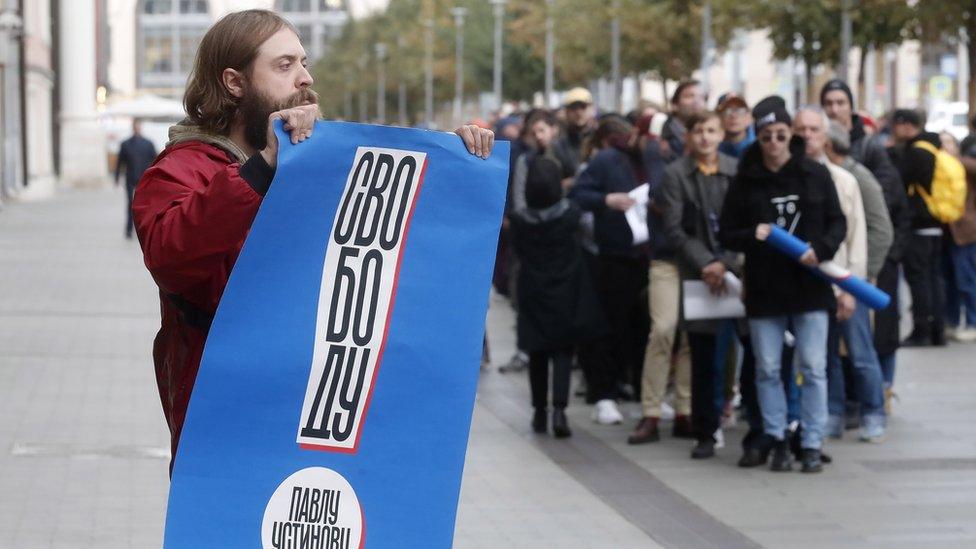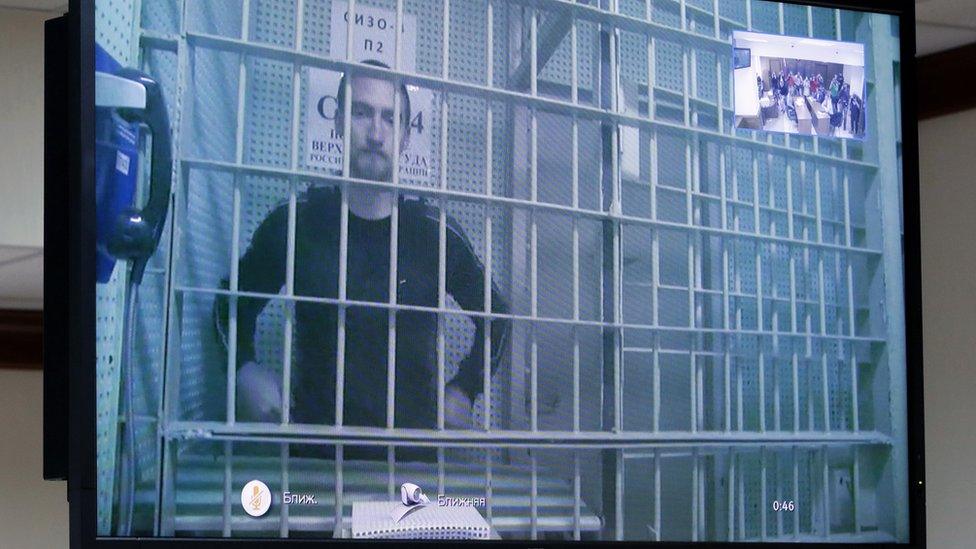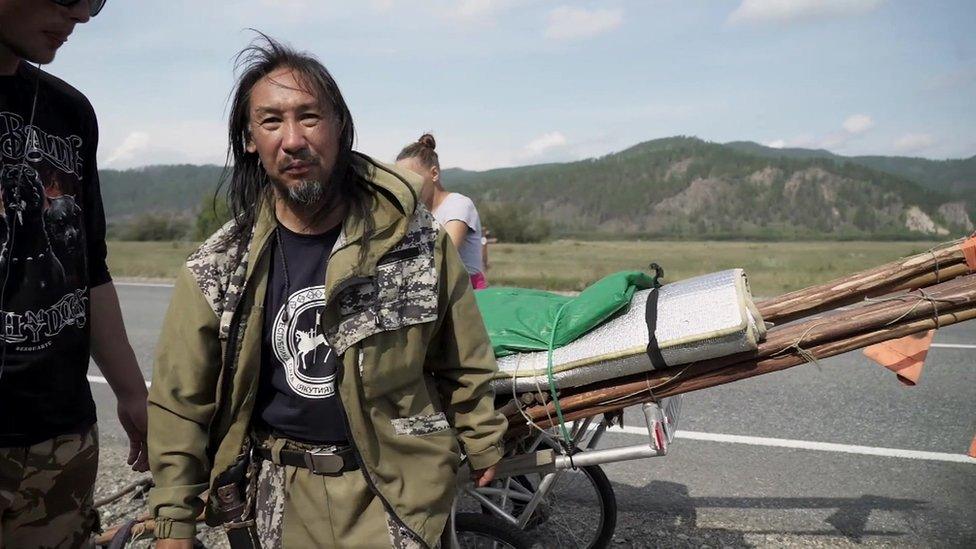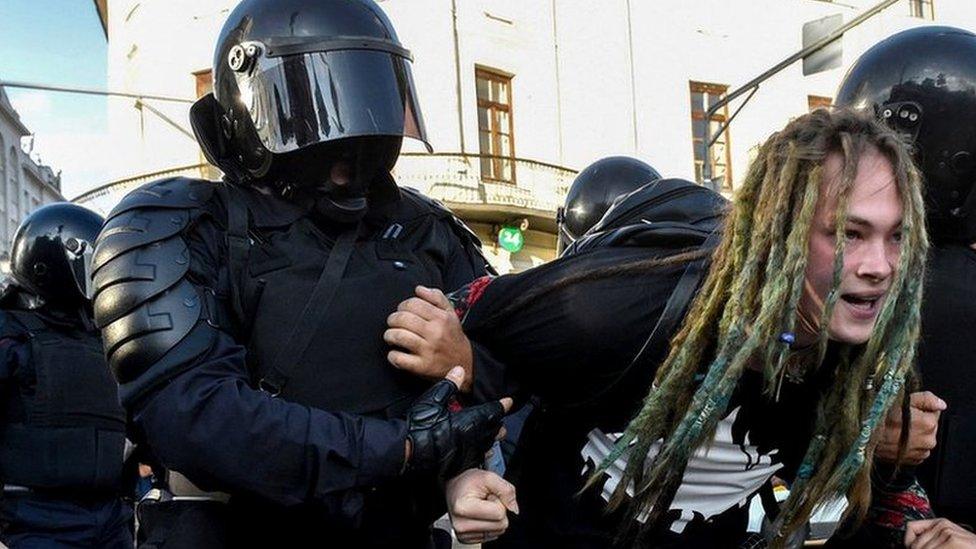Russian actor Ustinov freed from jail after protest campaign
- Published

Russians are only allowed to stage single, unauthorised pickets - this event calling for freedom for Ustinov took place on Wednesday
Pavel Ustinov, an actor jailed for three and a half years after he was controversially accused of wounding a police officer, has been freed pending appeal after prosecutors intervened.
His case had prompted rare protests from Orthodox priests, and campaigns by teachers, actors and IT specialists.
Supporters said Ustinov was an innocent bystander caught up in a protest.
Prosecutors said they did not dispute proof of his guilt but said the sentence had been "excessively harsh".
His appeal is due to be heard next week. His sister said his conviction should be overturned as he was innocent.
Why was Ustinov jailed?
His jail term on Monday was the seventh conviction since a wave of opposition protests began over the summer.
Demonstrators had taken to the streets after Russian authorities refused to allow opposition candidates to stand in the 8 September Moscow council elections. Some are still awaiting trial in what has become dubbed the "Moscow case".
The judge accepted the police account that an officer had dislocated his shoulder as the 23-year-old actor resisted arrest during an opposition protest.
He refused to watch video of the incident, external, which showed Ustinov standing in the centre of Moscow looking at his phone, unaware that riot police from the Rosgvardia national guard were closing in on him.
Ustinov is seen being tackled to the ground and set upon by police with batons amid screams from bystanders.

Ustinov appeared in court via video link from prison on Friday
Ustinov told the court he had nothing to do with the protest but was meeting a friend at the time. He denied resisting arrest and using violence against a police officer.
Prosecutors had originally sought six years in jail for Ustinov but changed tack amid mounting outrage about the case. Deputy prosecutor-general Yuri Ponomaryev called for a "form of punishment not involving real deprivation of freedom".
Who objected to Ustinov's sentence?
Some 100 actors took to social media to protest and renowned film director Andrei Zvyagintsev appealed to President Vladimir Putin to intervene.
Sparked by Ustinov's sentence, an open letter on Tuesday by members of the Russian Orthodox Church was published in which they said that "decisions against defendants in the 'Moscow case' puzzle us". More than 100 priests have signed the document.
Students are trying to raise money and hire lawyers for those still in jail
Teachers have also launched a campaign after students were detained and even jailed for their role in opposition protests. Hundreds of writers and journalists have sent a message of support, complaining that the "lives of young people are being broken".
Opposition to the judicial response has also come from 600 Russian medics and some 200 IT specialists.
How opposition is also being heard in Siberia
A Siberian shaman, who decided to walk more than 8,000km (5,000 miles) to Moscow with the aim of driving President Putin from office, has been arrested and sent to a psychiatric hospital.

Alexander Gabyshev had travelled over 3,000km when he was arrested
Alexander Gabyshev had already travelled 3,000km since March by the time police decided to detain him on Thursday.
Amnesty International accused Russian officials of a "grotesque" response.
The human rights group said his actions might be eccentric but no offence had been committed and his detention was arbitrary.
The shaman told BBC Russian before his arrest that he was objecting to a lack of political freedom, to corruption and to harsh prison conditions, and he hoped to attract a million supporters by the time he reached the Kremlin.
- Published30 August 2019
